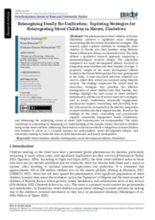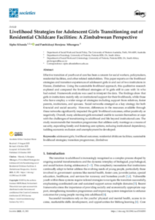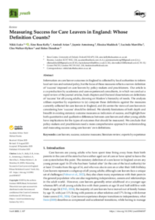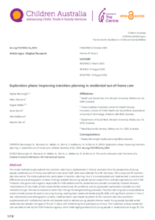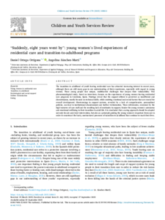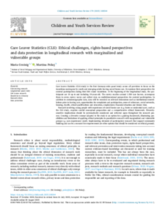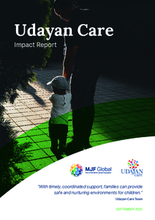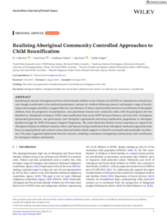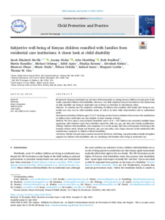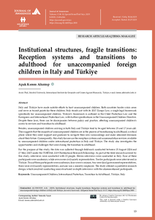Displaying 11 - 20 of 991
This study examines strategies for reintegrating street children in Harare, Zimbabwe, into their families, highlighting the root causes of homelessness and the need for psychosocial support, counselling, family conferences, and community engagement. It emphasizes innovative, evidence-based approaches to ensure effective family reintegration and informs policymakers, social development officers, and researchers addressing child homelessness.
This study explores the transition and livelihood strategies of adolescent girls in and out of institutional care in Harare, Zimbabwe, comparing 16 girls still in care with 16 who had exited. Findings reveal that girls leaving care rely on diverse social networks for survival but often struggle to sustain themselves, highlighting the need for transition programs that reduce institutional dependency, prevent early marriage, and promote economic inclusion.
This article reviews how ‘success’ is defined for young adults, comparing academic and care-experienced perspectives with the narrow statutory outcome measures currently used for care leavers in England. It finds that existing measures are limited and advocates for a more comprehensive approach that centers care leavers’ own definitions of success.
This mixed-methods study examined transition planning in Victoria, Australia, from the perspectives of young people, residential out-of-home care staff, and cross-sector workers, revealing that while multiple organizations support youth—particularly Child Protection and residential care providers—responsibilities and participation methods vary, with young people often involved indirectly rather than through formal goal-setting.
This study explores the experiences of young women leaving residential care in Catalonia, Spain, revealing that limited, inconsistent support—focused mainly on technical skills—neglects their emotional and social needs. It calls for a caring, individualized approach to guide their transition to adulthood and prevent further vulnerability and institutional abandonment.
This article presents the Care Leaver Statistics (CLS) study, the first nationwide panel study in Germany focused on young people leaving out-of-home care, like foster or residential care. It follows about 1,500 youth aged 16–19 over several years to understand their life transitions, including education, employment, housing, health, social networks, and societal participation. The study also emphasizes ethical research practices, diversity sensitivity, and participatory methods that can empower care-experienced youth.
This three-year initiative focused on strengthening family reintegration and preventing unnecessary child separation in Delhi, India
This article examines why reunification rates for Aboriginal and Torres Strait Islander children in out-of-home care in New South Wales, Australia remain so low, despite being the preferred permanency option. Drawing on insights from practitioners, it highlights the need for culturally grounded approaches and a redefinition of reunification that centers ongoing family and community connections.
This study examined how disability status affects the well-being of children in Kenya who were reunified with families after living in residential care. It found that children with disabilities reported lower well-being and life satisfaction compared to their peers without disabilities, highlighting the need for targeted support during reunification.
Italy and Türkiye, both key transit countries for unaccompanied children, have legal frameworks to support them, yet gaps between policy and practice hinder access to services and a smooth transition to adulthood. This study, based on qualitative fieldwork and 23 interviews conducted in both countries, examines reception systems, accommodation services, and the challenges unaccompanied children face during this critical life stage.

